Уильям Моэм - Мистер Всезнайка. Рассказы
- Название:Мистер Всезнайка. Рассказы
- Автор:
- Жанр:
- Издательство:неизвестно
- Год:неизвестен
- ISBN:нет данных
- Рейтинг:
- Избранное:Добавить в избранное
-
Отзывы:
-
Ваша оценка:
Уильям Моэм - Мистер Всезнайка. Рассказы краткое содержание
Метод чтения Ильи Франка
Мистер Всезнайка. Рассказы - читать онлайн бесплатно полную версию (весь текст целиком)
Интервал:
Закладка:
cheerful ['tSIqf(q)l], mercurial [mW'kju(q)rIql], irreparable [I'rep(q)rqb(q)l], injury ['IndZqrI], justification ["dZAstIfI'keIS(q)n]
His letter was very cheerful. From the beginning Jean had told himself that Riri, with his mercurial temperament, would soon forget Marie-Louise, and his letter looked as if he had already done so. He had done him no irreparable injury. It was a justification. For if he had lost Marie-Louise he would have died; with him it was a matter of life and death.
For a year Jean and Marie-Louise were extremely happy (целый год Жан и Мария-Луиза были очень счастливы; extremely — крайне, чрезвычайно ). Madame Meurice died, and Marie-Louise inherited a couple of hundred thousand francs (мадам Мерис умерла, и Мария-Луиза унаследовала пару сотен тысяч франков); but with the depression and the unstable currency (но из-за /экономической/ депрессии и неустойчивого /курса/ валюты; currency — употребительность; валюта, деньги ) they decided not to have a child till the economic situation was less uncertain (они решили не заводить ребенка до тех пор, пока экономическая ситуация не станет более надежной: «менее сомнительной»). Marie-Louise was a good and frugal housekeeper (Мария-Луиза была хорошей и экономной хозяйкой; housekeeper — экономка; домашняяхозяйка ). She was an affectionate, amiable and satisfactory wife (она была любящей, дружелюбной, хорошей женой; satisfactory — удовлетворительный; приятный, хороший ).
extremely [Ik'stri: mlI], inherit [In'herIt], currency ['kArqnsI], frugal ['fru: g(q)l]
For a year Jean and Marie-Louise were extremely happy. Madame Meurice died, and Marie-Louise inherited a couple of hundred thousand francs; but with the depression and the unstable currency they decided not to have a child till the economic situation was less uncertain. Marie-Louise was a good and frugal housekeeper. She was an affectionate, amiable and satisfactory wife.
She was placid (она была спокойной). This before he married her had seemed to Jean a rather charming trait (это /ее качество/ до того, как он женился, казалось Жану довольно очаровательным; trait— характерная черта, особенность, свойство ), but as time wore on it was borne in upon him (но со временем: «но, когда время прошло» ему стало понятно; towearon— медленно тянуться, проходить;tobear— нести;tobeborneinon/upon/smb. — стать ясным, понятным кому-либо ) that her placidity came from a certain lack of emotional ardour (что ее спокойствие происходит от некоторого недостатка эмоциональности: «эмоционального жара»; ardour — жар, рвение, пыл ). It concealed no depth (оно /спокойствие/ не таило в себе никакой глубины; depth— глубина, глубь ). He had always thought she was like a little mouse (ему всегда казалось, что она была похожа на маленькую мышку); there was something mouse-like in her furtive reticences (было что-то мышиное в ее скрытных умалчиваниях; furtive— вороватый; скрытый, тайный; reticence — молчаливость, немногословность; сдержанность; умалчивание ); she was oddly serious about trivial matters (она как-то странно серьезно относилась к мелочам; trivial— незначительный, мелкий; тривиальный ) and could busy herself indefinitely with things that were of no consequence (и могла бесконечно заниматься вещами, которые не имели совершенно никакого значения; consequence— следствие, последствие; значение, важность ).
placid ['plxsId], ardour ['Q: dq], furtive ['fWtIv], reticence ['retIs(q)ns], trivial ['trIvIql]
She was placid. This before he married her had seemed to Jean a rather charming trait, but as time wore on it was borne in upon him that her placidity came from a certain lack of emotional ardour. It concealed no depth. He had always thought she was like a little mouse; there was something mouse-like in her furtive reticences; she was oddly serious about trivial matters and could busy herself indefinitely with things that were of no consequence.
She had her own tiny little set of interests (у нее был свой собственный крошечный круг интересов; set— комплект, набор, коллекция ) and they left no room in her pretty sleek head for any others (и они не оставляли в ее крошечной причесанной головке места для каких-либо других /интересов/; room— комната, зал; место, пространство;sleek— лоснящийся /о волосах, шерсти/; прилизанный /о волосах/ ). She sometimes began a novel (иногда она начинала /читать/ какой-нибудь роман), but seldom cared to finish it (но редко ей хотелось дочитать его до конца). Jean was obliged to admit to himself that she was rather dull (Жан был вынужден признаться самому себе, что она была довольно глупа; dull— тупой, бестолковый ). The uneasy thought came to him (у него появилась беспокоящая мысль; uneasy— неудобный; беспокойный, тревожный ) that perhaps it had not been worth while to do a dirty trick for her sake (что, возможно, та подлость, которую он совершил ради нее, /совсем/ того не стоила; dirty— грязный, нечистый; низкий, подлый;trick— хитрость, обман ). It began to worry him (она /эта мысль/ начала тревожить его).
obliged [q'blaIdZd], uneasy [An'i: zI], worry ['wArI]
She had her own tiny little set of interests and they left no room in her pretty sleek head for any others. She sometimes began a novel, but seldom cared to finish it. Jean was obliged to admit to himself that she was rather dull. The uneasy thought came to him that perhaps it had not been worth while to do a dirty trick for her sake. It began to worry him.
He missed Riri ( онскучалпорири; to miss — скучать, чувствоватьотсутствие, нехватку ). He tried to persuade himself that what was done was done (он пытался убедить себя, что то, что сделано, сделано) and that he had really not been a free agent (и что он, на самом деле, не был самостоятельным человеком = сделал это невольно; free agent — человек, обладающийсвободойволи; независимый, самостоятельныйчеловек ), but he could not quite still the prickings of his conscience (но он не мог полностью утихомирить угрызения совести; pricking — прокалывание; укол ). He wished now that when the director of his firm spoke to him he had answered differently (теперь ему хотелось, чтобы в тот момент, когда директор его фирмы разговаривал с ним, он ответил бы по-другому).
persuade [pq'sweId], pricking ['prIkIN], differently ['dIf(q)rqntlI]
He missed Riri. He tried to persuade himself that what was done was done and that he had really not been a free agent, but he could not quite still the prickings of his conscience. He wished now that when the director of his firm spoke to him he had answered differently.
Then a terrible thing happened (затем случилась ужасная вещь). Riri contracted typhoid fever and died (Рири подхватил брюшной тиф и умер; to contract — заключатьдоговор; подхватывать/болезнь/; fever — жар; лихорадка ). It was a frightful shock for Jean (для Жана это стало страшным потрясением). It was a shock to Marie-Louise too (для Марии-Луизы это тоже было потрясение); she paid Riri’s parents the proper visit of condolence (она нанесла родителям Рири визит, /высказав/ надлежащие соболезнования; proper — присущий, свойственный; надлежащий, должный ), but she neither ate less heartily nor slept less soundly (но она не стала ни есть с меньшим аппетитом, ни спать менее крепко; heartily — сердечно, искренне; усердно, сжаром; soundly — обоснованно, серьезно; беспробудно, крепко ). Jean was exasperated by her composure (Жана раздражало/бесило ее хладнокровие; to exasperate — сердить; возмущать, раздражать; изводить; бесить, приводить в ярость; composure — спокойствие; хладнокровие;самообладание, уравновешенность; to compose — составлять; улаживать, успокаивать ).
"Poor chap, he was always so gay (бедняга, он всегда был такой веселый; poor — бедный, неимущий; бедный, несчастный )," she said, "he must have hated dying (ему, должно быть, очень не хотелось умирать). But why did he go out there (но зачем же он туда уехал)? I told him the climate was bad (я говорила ему, что климат там плохой); it killed my father and I knew what I was talking about (он /климат/ убил моего отца, и я знала, о чем говорю)."
typhoid ['taIfOId], fever ['fi: vq], frightful ['fraItf(q)l], condolence [kqn'dqulqns], exasperated [Ig'zQ: spqreItId], composure [kqm'pquZq]
Then a terrible thing happened. Riri contracted typhoid fever and died. It was a frightful shock for Jean. It was a shock to Marie-Louise too; she paid Riri’s parents the proper visit of condolence, but she neither ate less heartily nor slept less soundly. Jean was exasperated by her composure.
"Poor chap, he was always so gay," she said, "he must have hated dying. But why did he go out there? I told him the climate was bad; it killed my father and I knew what I was talking about."
Читать дальшеИнтервал:
Закладка:

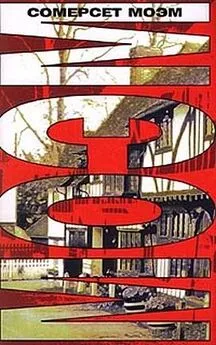
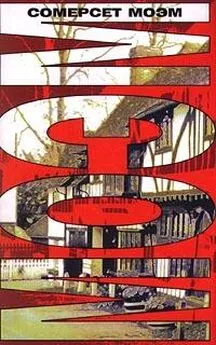
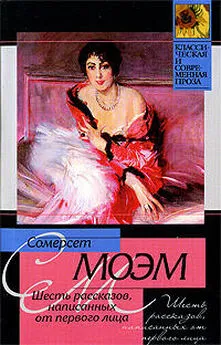
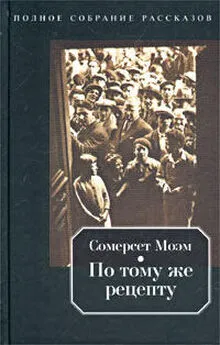
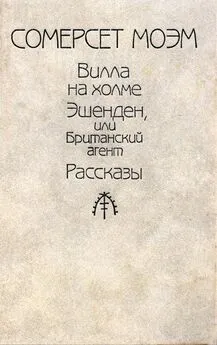
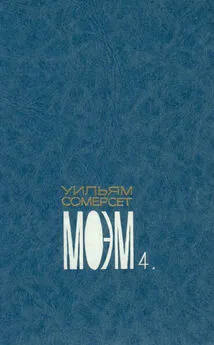
![Уильям Моэм - Сумка с книгами [Рассказы]](/books/1081361/uilyam-moem-sumka-s-knigami-rasskazy.webp)